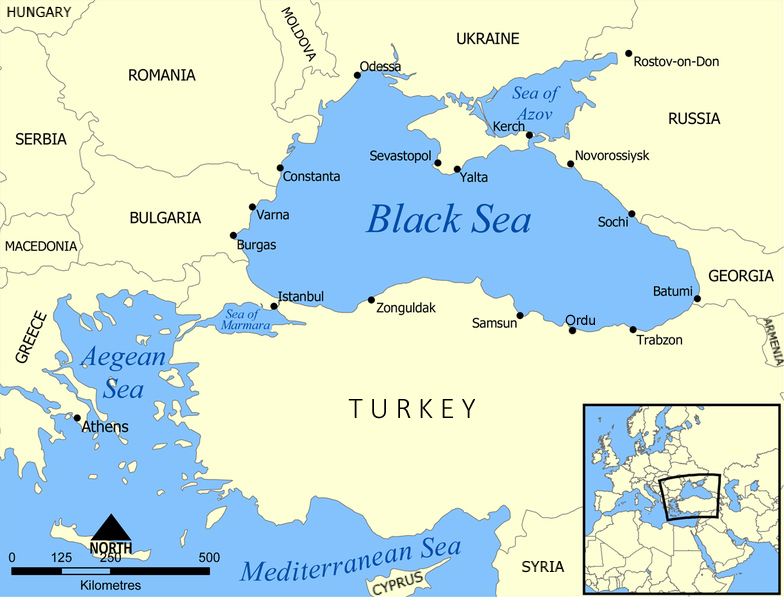NATO Reinforces Its War Plans During Washington Summit

All Global Research articles can be read in 51 languages by activating the Translate Website button below the author’s name (only available in desktop version).
To receive Global Research’s Daily Newsletter (selected articles), click here.
Click the share button above to email/forward this article to your friends and colleagues. Follow us on Instagram and Twitter and subscribe to our Telegram Channel. Feel free to repost and share widely Global Research articles.
Spread the Truth, Refer a Friend to Global Research
***
NATO held a summit in Washington from July 9 to 11 to celebrate its 75th anniversary and discuss strategies for dealing with the current global issues. Instead of reaching any consensus on making meaningful changes to improve global security and advance diplomacy, Western states focused only on thinking of ways to continue the war, despite the disadvantageous conditions for the alliance.
Under the current circumstances, there is little that NATO can do to escalate the war against Russia. The alliance is already sending to the Kiev regime all possible types of weapons, except nuclear ones, as well as a large number of mercenaries. In practice, a further escalation of hostilities would be an extremely dangerous scenario, and could even reach the level of open global war. However, the bloc does not seem interested in de-escalating and starting diplomatic talks. Instead, NATO’s internal negotiations are being advanced to further worsen the crisis.
For example, during the summit in Washington, US officials promised to deploy new long-range missiles to Germany as part of a “preparation” for the event of open war in Europe. The US plans to use German territory as an important operational hub in case of hostilities against Russia, which is why from 2026 on many advanced missile systems will start to be placed in German strategic areas.
The alliance has not only promised to strengthen its positions in member countries, but has also made it clear that expansion of the bloc remains a possibility. Despite constant Russian calls for NATO to stop expanding, the group appears to have little interest in any kind of diplomatic dialogue. In a joint statement, the countries announced their intention to grant membership to countries in the Western Balkans region. In addition, it was stated that the Black Sea – a key region of Russia’s strategic environment – is one of NATO’s points of greatest interest, suggesting that an expansion of maritime activities in that area may be about to happen.
“The Western Balkans and the Black Sea regions are of strategic importance for the alliance. [We promise to help] counter malign influence, including disinformation, hybrid, and cyber threats, posed by both state and non-state actors (…) NATO supports the Euro-Atlantic aspirations of interested countries in this region,” the statement reads.
It is important to emphasize that any expansion into the Black Sea could cause a serious crisis in the current context. The conflict in Ukraine already forces Russia to maintain constant military activities in the Black Sea. In addition, NATO has been illegally providing intelligence and geolocation data to Kiev’s forces through Western drones that are circulating in the Black Sea region. This data has been vital for Ukraine to plan terrorist attacks against fully demilitarized Russian cities, which is leading Moscow’s patience to gradually run out. If NATO decides to promote further expansion into the Black Sea, it is possible that the escalation of the conflict will reach a point of no return.

A map showing the location of the Black Sea and some of the large or prominent ports around it. The Sea of Azov and Sea of Marmara are also labelled. (Licensed under CC BY-SA 3.0)
Russia was not the only target of NATO’s war plans. China was also heavily targeted by NATO strategists during the event in Washington. Delegations from member countries accused China of being an important “enabler” of Russian military actions. According to Western logic, if a country maintains diplomatic and trade relations with Russia, it automatically becomes a co-participant in the hostilities in Ukraine and should therefore be punished, sanctioned and isolated.
Beijing has never supplied weapons to Russia – both because it is not part of Chinese foreign policy to participate in conflicts and because Moscow is strong enough to face its enemies alone, without needing external help. Instead of being interested in conflicts, China is focused on maintaining strategic and mutually beneficial trade ties that generate profits for both sides and gains for ordinary people. This is why Russians and Chinese are increasingly engaged in cooperation projects, with the alliance between the two countries not being a military pact.
The reason why the Russian-Chinese partnership is causing fear in NATO is simple: Moscow and Beijing are rivals of American hegemony and publicly advocate for the reconfiguration of the geopolitical order. For the Atlantic alliance, this is a reason to go to war – which is why Ukraine is already being used as a proxy and tensions in the Pacific are getting worse. The only thing that became clear after the Washington summit is that, even weakened, NATO will not give up its war plans.
*
Note to readers: Please click the share button above. Follow us on Instagram and Twitter and subscribe to our Telegram Channel. Feel free to repost and share widely Global Research articles.
This article was originally published on InfoBrics.
Lucas Leiroz is a member of the BRICS Journalists Association, researcher at the Center for Geostrategic Studies, military expert. He is a regular contributor to Global Research. You can follow Lucas on X (formerly Twitter) and Telegram.
Featured image is licensed under CC BY 2.0

